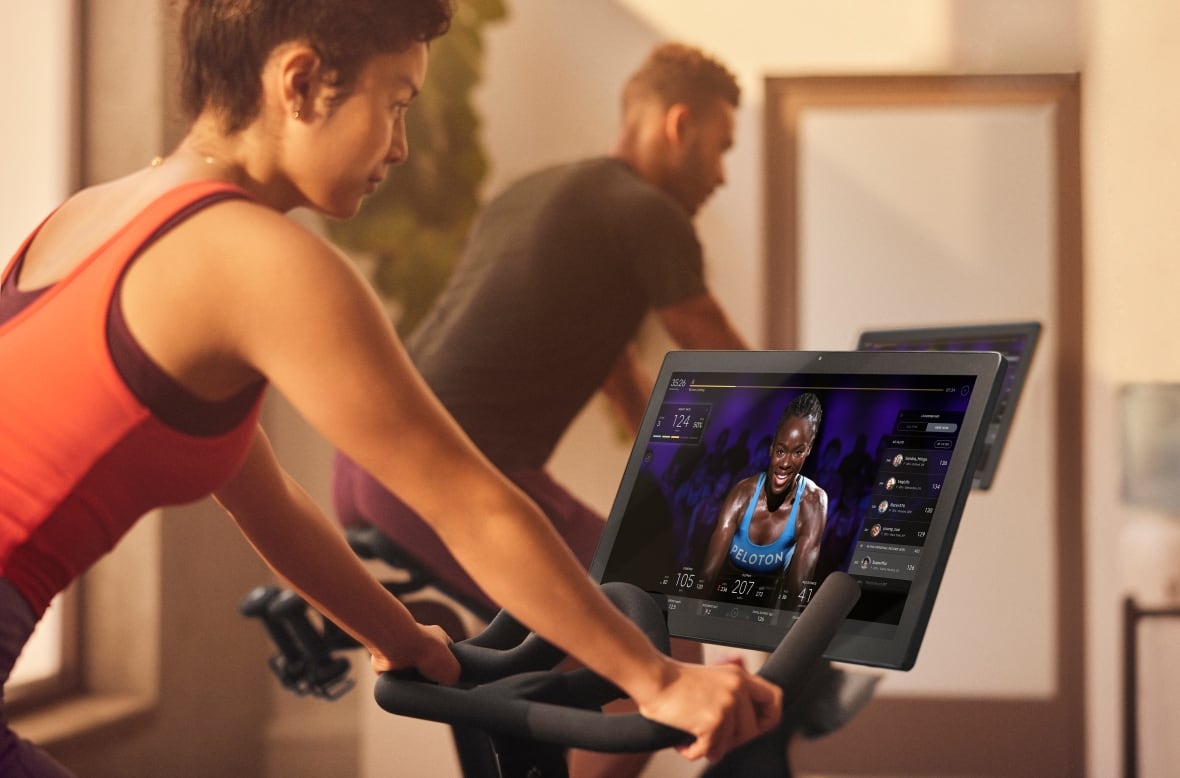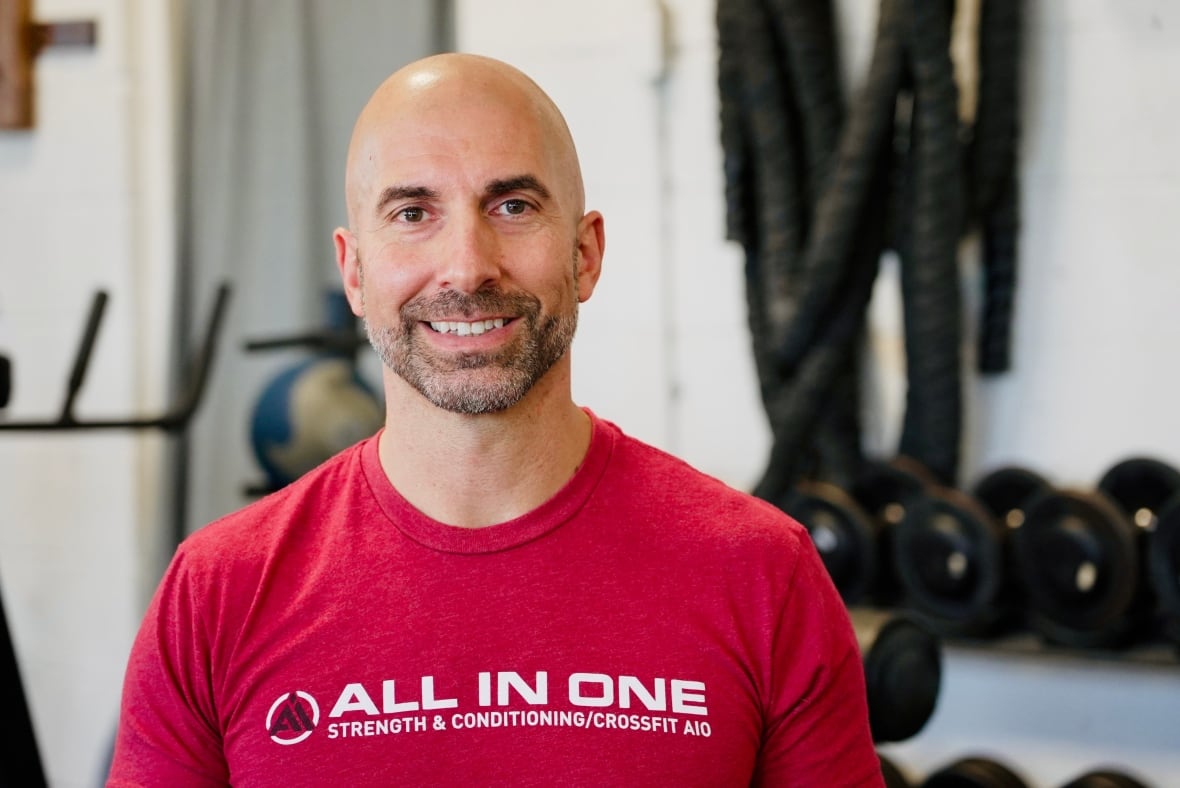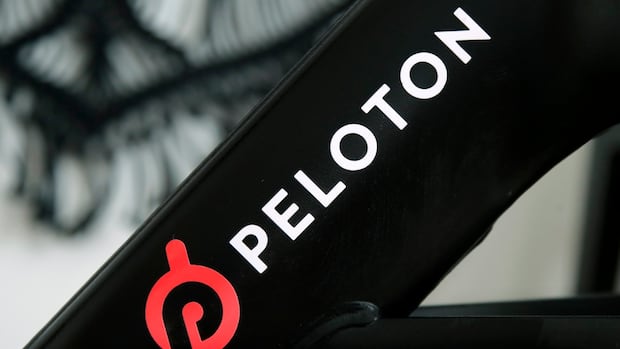Anyone who’s ever gone to the gym knows that a little form correction goes a long way: maybe your squat isn’t deep enough, your weights aren’t heavy enough or your push-up form is weak.
Usually, a personal trainer would help you with that. But the fitness equipment company Peloton is proposing something different: an AI-powered camera that detects your movements and gives you real-time feedback while you work out.
“It’s like having an AI-powered personal trainer in your house for a fraction of the price,” said Nick Caldwell, chief product officer at Peloton, in an interview with CBC News.
It’s AI, though it’s not quite an avatar — the Peloton IQ pairs a Siri-like voice with on-screen prompts.
The company is the latest to incorporate artificial intelligence into its fitness equipment. While industry experts and fitness instructors caution that the technology has its limitations, they see it as a potential complement — rather than an outright replacement — for traditional personal trainers.
“I think any fitness company that wants to be around past, say, Christmas is definitely thinking about how to integrate AI into their offerings,” said Natalia Mehlman Petrzela, a history professor at the New School who has researched the fitness industry.
 A rider is shown on a commercially-certified Peloton bike. The company’s ultra-popular instructors developed a cult-like following. (Peloton)Celebrity trainers versus AI instructors
A rider is shown on a commercially-certified Peloton bike. The company’s ultra-popular instructors developed a cult-like following. (Peloton)Celebrity trainers versus AI instructors
Peloton, known for its stationary bikes and instructor-led online workouts, went public in 2019 — just a few months before a COVID-19 pandemic-era craze for home gym equipment helped it cruise to the upper echelons of fitness industry royalty.
The company’s ultra-popular instructors developed a cult-like following, becoming an “incredible asset” that many riders have “parasocial relationships” with, said Petrzela, referring to a one-sided relationship with a celebrity.
As more people exercised at home, the company’s stock peaked at $162 US per share on Christmas Day in 2020. But once emergency lockdowns ended and gyms opened their doors, its value plummeted. The stock now sells for about $9 US a share.
During the heyday of Peloton’s popularity, some instructors even nabbed their own lucrative sponsorship deals with companies like Adidas and Lululemon — making them probably expensive for Peloton to keep, said Petrzela.
However, “it would be suicide to replace those instructors with AI bots, even if they could make them move or look just like them,” she added.
LISTEN | How Peloton instructors developed a cult-like following:
While Peloton will use data from the company’s existing instructors to train the AI, Caldwell says that the tool will also “guide” users toward trainers who could be a good fit for them.
The goal is not to lure consumers away from their morning run or their gym session: “We’re not trying to get everyone to only work out on extra-transit running machines in their house,” he said.
“But we know that that’s going to be an important part of many people’s fitness, because of the convenience and the affordability of having the equipment in your own home.”
Can AI replace your trainer? Probably not, says instructor
When it comes to fitness and artificial intelligence, Peloton has company.
The Carol stationary bike uses AI to build personalized workouts; the company Magic’s AI-powered Mirror uses the technology to correct form and count reps; the Speediance Gym Monster uses an “AI coach” to suggest adjustments; and equipment company Tonal has integrated AI into its weightlifting machine.
“There’s a huge financial upside for technology companies to move into the fitness industry because so many of them are already developing this tech,” said Petrzela, noting that wearable devices are already popular in the athletic world.
But not everyone in the fitness industry is rushing to adopt the latest tech. Personal trainer Carlo Celotti keeps it simple at the gym he co-owns in Toronto.
“If it’s iron and it’s heavy, we’ll probably use it. That’s kind of our style. Because at the end of the day, you really don’t need much more than that,” he told CBC News.
 Carlo Celotti, a personal trainer and co-owner of All In One Strength and Conditioning in Toronto, said that artificial intelligence can’t recreate the experience of working with a trainer. (Nisha Patel/CBC)
Carlo Celotti, a personal trainer and co-owner of All In One Strength and Conditioning in Toronto, said that artificial intelligence can’t recreate the experience of working with a trainer. (Nisha Patel/CBC)
When it comes to using artificial intelligence for exercise, Celotti said he welcomes any tools that encourage people to get and stay active — but AI can’t recreate the experience of working with a trainer, he adds.
“There’s times when we’re using verbal cues to correct somebody. Maybe that’s not going to work with certain people and we’ll have to use tactile cues. It’s going to be hard for AI to do something like that where we can,” Celotti said.
As such, he’s not worried about AI taking people away from his business. Many of those clients come to the gym for the communal experience — which was especially evident after the lockdowns ended, he said.
“It’s putting out a hard effort amongst other people who are doing the same. There’s something about that just brings people together.”

